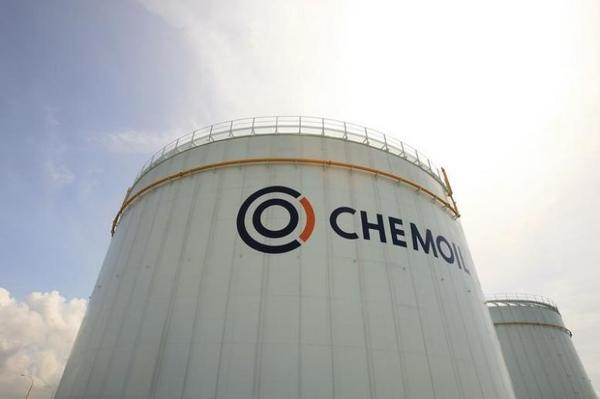U.S. says Glencore unit to pay record $27 million for biofuels compliance
Date: 30-Sep-16
Country: USA
Author: David Alexander, Chris Prentice and Jessica
Resnick-Ault

Oil storage tanks are
seen at Chemoil's Helios terminal on Singapore's Jurong Island
February 28, 2008.
Photo: Tim Chong
Glencore Plc's bunker fuel unit has agreed to pay a $27-million penalty and retire over $71 million worth of credits for compliance with the U.S. biofuels program to resolve charges it violated the policy, the U.S. government said on Thursday.
The U.S. Department of Justice and the Environmental Protection Agency (EPA) alleged that Chemoil Corp exported at least 48.5 million gallons of biodiesel from the United States from 2011 to 2013 but failed to retire the associated renewable identification numbers generated for the exported fuel.
In addition to paying the highest-ever civil penalty in such a case, Chemoil will have to retire some 65 million renewable fuel credits in the settlement, the Justice Department said. It has already retired 7.7 million.
The credits are used by oil refiners and gasoline importers to prove they are meeting government mandates for use of ethanol and biodiesel in gasoline and diesel.
The removal of millions of the credits, known as Renewable Identification Numbers (RINs), from the market will likely stoke mounting worries over tightening inventories of the credits. Oil refiners and others have said that prices of credits are soaring in response to the U.S. government's plan to boost renewable fuel mandates next year.
Prices of renewable fuel (D6) credits for 2016 compliance traded as high as 90 cents apiece following the news, then eased back to 88 to 89 cents each. That was little-changed from 87.75-88.75 cents on Wednesday, brokers said.
The biomass-based diesel (D4) credits for current year traded up to $1.02 apiece, up from a range of 99.75 cents to $1.005 each previously, they said.
A New York-based products trader said the penalty would strengthen a rally in distillate, or diesel, prices, including ultra-low sulfur diesel futures on the New York Mercantile Exchange, which rose 1 percent Thursday.
The diesel prices tend to rise with RINs to compensate for U.S. producers' cost of buying the credits.
The RIN market has been rife with fraud in previous years, and the U.S. government has settled a number of cases of past fraud in recent months.
![]()
© Thomson Reuters 2016 All rights reserved